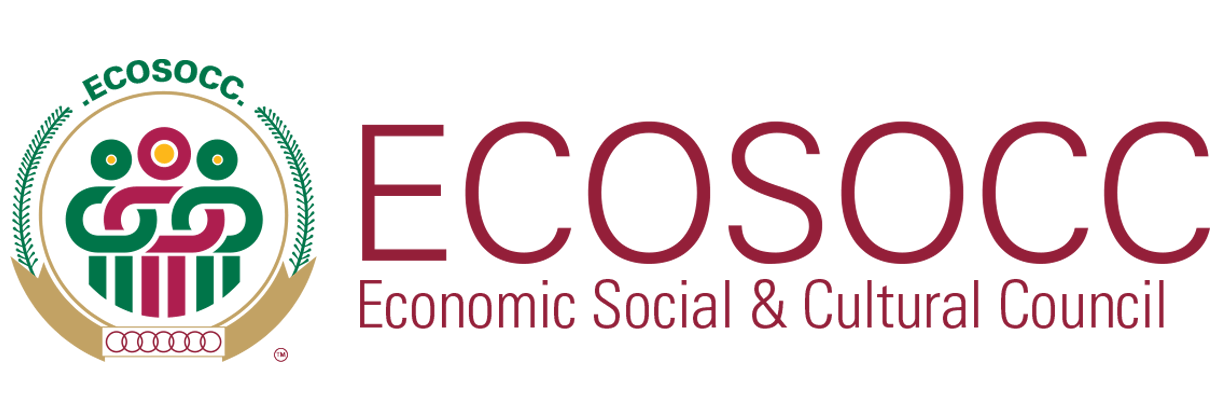The 2024 African Civil Society Dialogue on the recent Summit of the Future, was convened as part of the United Nations’ Summit of the Future Action Days. The landmark event united leaders and civil society advocates from across Africa and the diaspora to focus on three key themes: Youth Leadership, Amplifying Voices of African Citizenry, and Strengthening International Peace and Security. The dialogue was a crucial opportunity for African Civil Society Organizations (CSOs) to present their perspectives, especially in anticipation of the adoption of the UN Pact for the Future, the Declaration on Future Generations and the Global Digital Compact.
The dialogue was organised by the African Union’s Economic, Social and Cultural Council (ECOSOCC) in partnership with TrustAfrica, EU APSA IV, the US-Africa Bridge Building Project, Priority Africa Network, Advocacy Network for Africa (AdNA), Kuumbati Production, Geantesinvisible.com, the Federation of African Journalists (FAJ), and Oxfam South Africa, among other partners.
This year’s dialogue featured a robust panel of African and global thought leaders, including Khalid Boudali, ECOSOCC Presiding Officer; Ebrima Sall, Executive Director of Trust Africa; Lebogang Ramafoko, Executive Director of Oxfam South Africa; Prof. Adebayo Olukoshi, Distinguished Professor at WITS School of Governance; Professor Krista Johnson, Professor and Director of the Center for African Studies at Howard University; Chido Mpemba, AU Youth Envoy, Bheki Moyo, Professor and Director of Center for African Philanthropy and Social Investments, WITS University; Don Deya, CEO of Pan African Lawyers Union; Dr. Allan Mukungu, Economist at the United Nations Economic Commission for Africa; Tendisai Chigwedere, Programme Officer, Hewlett Foundation; Coumba Toure, TrustAfrica Board Chair and a renowned Storyteller and Author with Kumbaati productions; Brian Kagoro, Pan Africanist and Constitutional Lawyer, and Director of Programs at Open Society Foundations; Tawanda Mutasah, Vice President of Oxfam America; and many other CSO representatives from across the world.
Speaking at the opening ceremony of the Dialogue, Mr. Khalid Boudali, Presiding Officer, ECOSOCC, called for deep reflection on the current state of global governance and Africa’s place within it.
“The United Nations Security Council is tasked with maintaining international peace and security, yet it often falls short of reflecting the realities of the diverse global community it serves,” he remarked. “African voices must be included in the ongoing conversations about the UN Security Council reforms, ensuring that our concerns are heard and acted upon.”
He further emphasized that African CSOs, which are frequently on the frontlines of advocacy, possess crucial insights into the continent’s unique security challenges, including conflict, terrorism, and climate change.
“As we push for reforms, we must guarantee mechanisms that allow civil society to contribute to global decision-making,” Mr. Boudali concluded.
Echoing the theme of youth leadership, Mr. Ebrima Sall, Executive Director of Trust Africa, called for a rethink of global governance structures and emphasized the critical role of civil society in securing Africa’s future.
“People have lost faith in the future because the system is not working for them,” he remarked. “This cannot just be another summit—it must be a summit with a difference, where African civil society is at the center of the conversation and where the perspectives of youth and women are heard loud and clear.”
Mr. Sall emphasized that civil society is instrumental in holding governments accountable and promoting peace and security on the continent.
“We need to make these global conversations truly meaningful by ensuring that African civil society has a real seat at the table,” he continued. “Without proper representation, there can be no lasting peace in Africa or in the world.”
Ms. Lebogang Ramafoko, the Executive Director of Oxfam South Africa, reiterated the significance of involving youth in decision-making processes, particularly in governance, peacebuilding, and sustainable development. In alignment with the theme of Youth Leadership, the dialogue highlighted the importance of empowering Africa’s youth, who make up more than 60% of the continent’s population.
She remarked, “Youth leadership is about vision and passion, not just age. Young Africans are not waiting for approval to act; they are taking the initiative to advocate for justice, equity, and environmental sustainability.”
Ms. Ramafoko also pointed out the critical role of social media and digital platforms in amplifying the voices of African youth, stating, “In today’s digital world, young people have the tools at their disposal to effect change on a global scale. Their voices must be heard and included in policy development and governance.”
ECOSOCC Head of Secretariat, William Carew, highlighted the critical role of ECOSOCC in providing African civil society with a platform to influence policy and governance on the continent.
“As world leaders prepare to adopt the UN Pact for the Future, we are reminded of the pressing global challenges that need Africa’s attention, including peace and security, climate change, and inequality,” Mr. Carew stated. “African civil society, particularly our youth, must be at the heart of peacebuilding initiatives and global conversations on these pressing issues.”
Mr. Carew emphasized that the African Peace and Security Architecture (APSA) is a framework that addresses Africa’s security concerns, and it must align with the aspirations of Agenda 2063, which envisions a peaceful and prosperous Africa driven by its citizens. He warned of the growing disparity in power dynamics at the UN Security Council, urging that African CSOs must play a key role in global governance reforms, especially in peace and security.
“We have gathered here today to ensure that the world listens to Africa,” Mr. Carew concluded. “Our youth, civil society, and communities are the drivers of change, and it is time their voices are heard and respected on the global stage.”
In setting the scene for the dialogue, Prof. Adebayo Olukoshi, Distinguished Professor at WITS School of Governance, emphasized Africa’s evolving role in the global arena and how African civil society can drive positive change. Together, they shared invaluable insights on the importance of civil society in shaping Africa’s future, with a particular focus on youth empowerment, international peace, and security.
At the close of the African Civil Society dialogue, Briggs Bomba, Director of Programmes at TrustAfrica, encouraged participating CSOs to seize the opportunity presented by the Summit of the Future. He urged them to use this moment to strengthen the momentum for change and transformation, and to further the important campaigns that African civil society has long championed.
He emphasized “the importance of building on this once-in-a-generation moment to truly reimagine global governance and fulfill the historical task of this generation by concretely shifting the course of history towards a more just society.”
Call to Action
The dialogue concluded with a strong call to action, urging global leaders attending the UN Summit of the Future to:
- Amplify the voices of African civil society by ensuring that their feedback is central to global governance reforms, particularly at the UN Security Council.
- Empower youth and women in governance and peacebuilding, recognizing their critical roles in driving sustainable development and social cohesion.
- Reform the global governance architecture to ensure it is fair, inclusive, and representative of Africa’s unique challenges and aspirations.
- Strengthen partnerships with African CSOs, recognizing their grassroots insights into conflict resolution, climate resilience, and human rights advocacy.
- Support sustainable financing for Africa’s development, including innovative approaches to financing that prioritize the continent’s Sustainable Development Goals (SDGs).
- Provide accountability to citizens through periodic reports to on progress made towards achieving commitments made in the Pact for the Future, Declaration on Future Generations and the Global Digital Compact.
The African Civil Society Dialogue on the Pact for the Future underscored the power of African civil society to shape the continent’s future. From advocating for reforms at the UN Security Council to amplifying youth voices in governance, the message was clear: Africa must take its rightful place at the forefront of global governance.
The participants reaffirmed their commitment to continue working together to ensure that African perspectives are integral to global peace, security, and development efforts.








